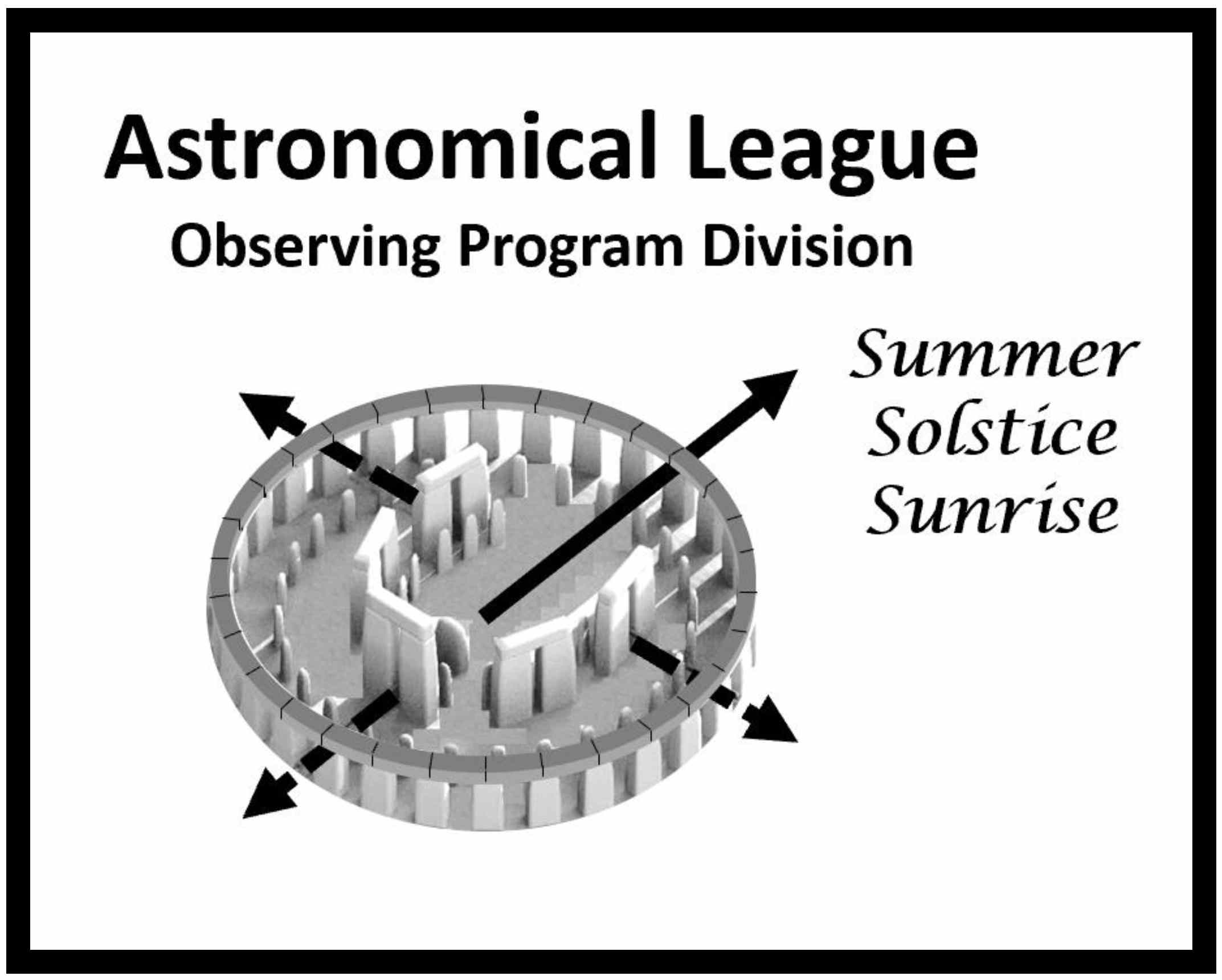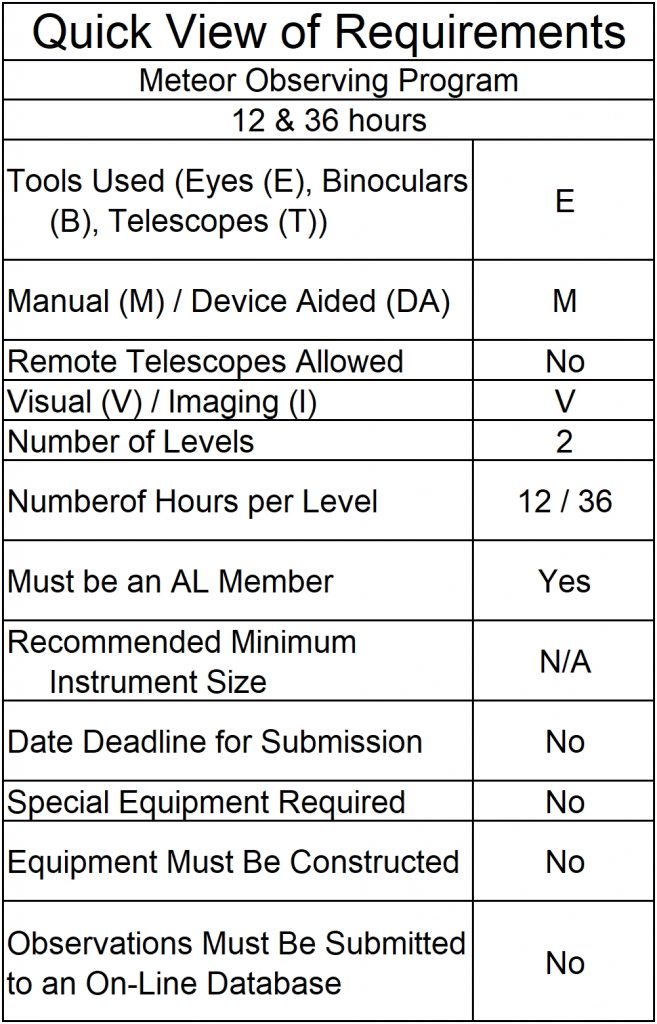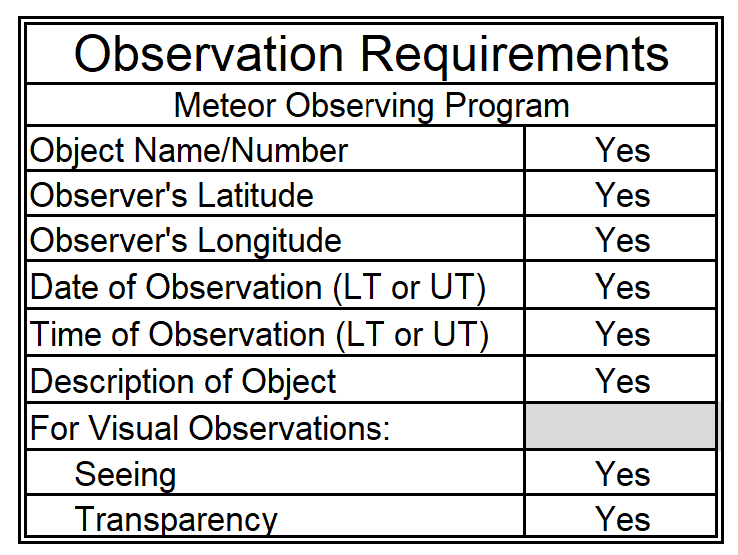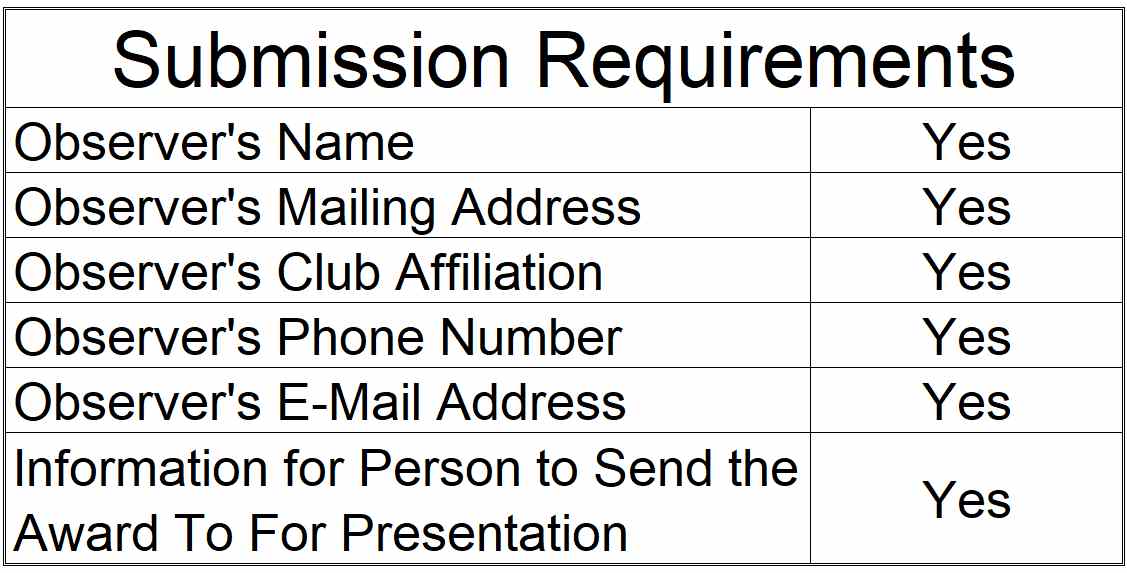Meteor Observing Program Coordinator:Scott Kranz |
 |
IntroductionMeteor observing is both fun and scientifically useful. It does not require expensive equipment, only your two eyes. Becoming a member of the Meteor Observing Program only requires that you are willing to allocate some of your time to look for nature’s fireworks. In addition, your observations can contribute to research on meteors and meteor streams by the Association of Lunar and Planetary Observers (A.L.P.O.). To share your data with the A.L.P.O., mail the report forms in a timely manner to the A.L.P.O. Meteors Section, 1828 Cobblecreek Street, Chula Vista, CA 91913, within 30 days of observation. Your report will then be added with other observers across North America and published in A.L.P.O.’s quarterly journal The Strolling Astronomer. The Section Recorder will archive a copy and send a copy to Europe for analysis by the International Meteor Organization. Another organization interested in meteors and meteor observing is the American Meteor Society. |
 |
Requirements and Rules
This certification is available to members of the Astronomical League, either through their local astronomical society or as members at large. If you are not a member and would like to become one, check with your local astronomical society, search for a local society on the Astronomical League Website, or join as a Member-At-Large in the Al Store.
The Astronomical League offers two levels of recognition in the Meteor Observing Program. For the Gold Level there is a certificate and pin (36 hours) and for the Silver Level there is a certificate only (12 hours) for those who have dedicated a substantial amount of time to observing meteors in an organized way. To obtain an award you must follow these rules:
Rule 1 (Silver Level):Observe meteors for a total of at least 12 hours. This may be in multiple sessions, but you must observe at least one hour for each individual session. Your notes must show all the information on the meteor observing form:
Rule 2:Include your name, mailing address, email address, phone number, society affiliation, and to whom the certification should be sent. Rule 3 (Gold Level):Continue obsersving. When you have reached 36 hours, you will receive a Gold Level certificate and pin. Be sure to indicate the return address. After 36 hours, it is no longer necessary to send your observations to the Astronomical League, but be sure to continue sending them to A.L.P.O. They may also be eligible for recognition through our Citizen Science Special Program. Enjoy your observing! |
  |
Send a copy of your observations to the Meteor Observing Program Coordinator. Originals will not be returned. Be sure you keep a copy of all your observations, as there is always the possibility that they could be lost in the mail.
Submitting for Certification
Meteor Observing Program Coordinator:Scott Kranz |
 |
Notes:
- The Astronomical League Web Store has a great manual available with information for this Observing Program. It is available here.
Links:
- What are meteors and why do they glow?
- Observing Meteors Techniques
- Printable Blank Meteor Observing Form in MS Excel Format, PDF Format
- The American Meteor Society’s list of major meteor showers.
- Find Your Observing Program Award



